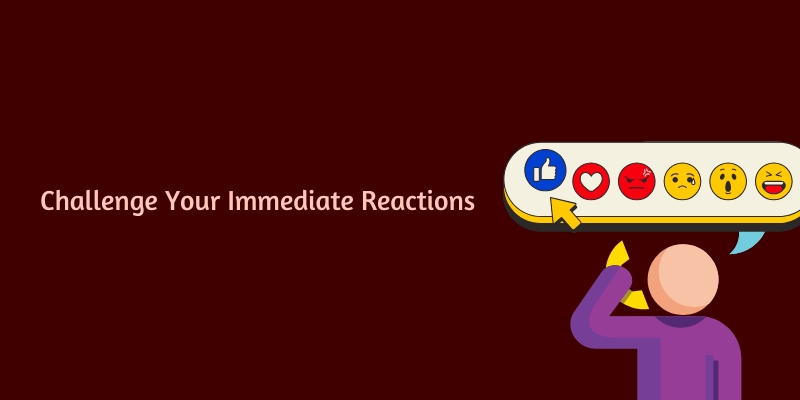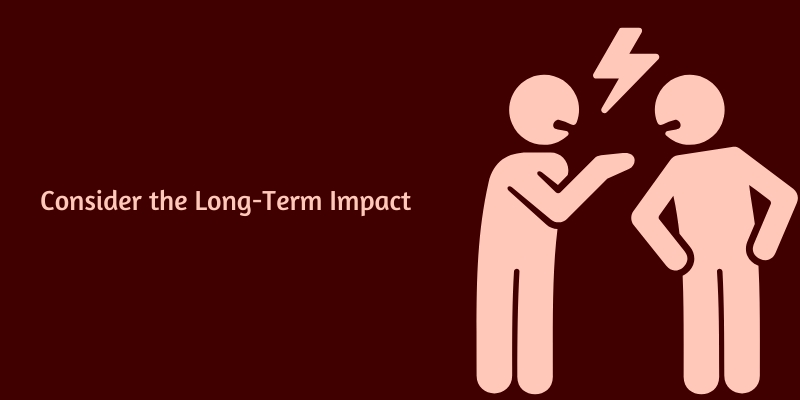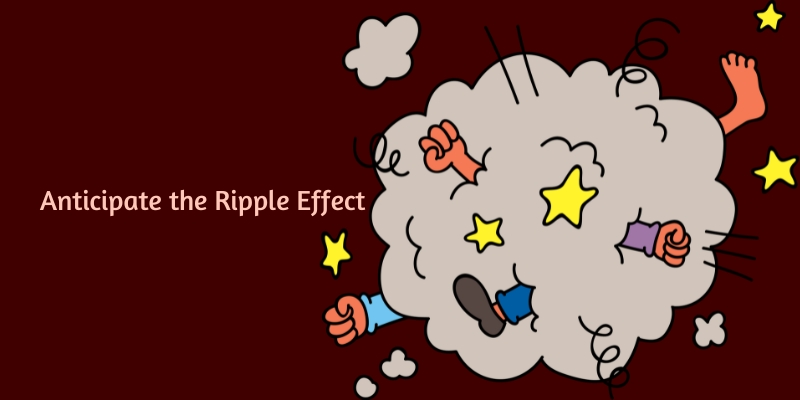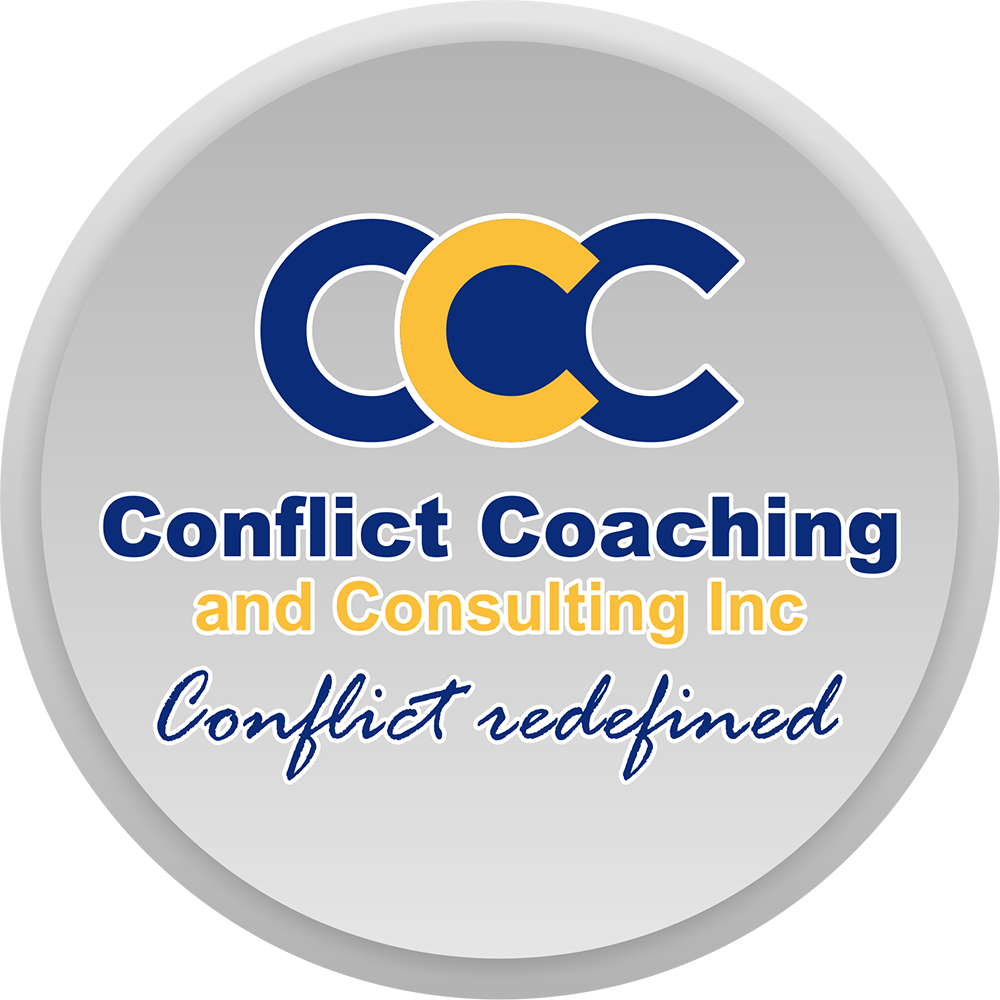
How to Control Your Anger During a Conflict?
Being in the middle of a heated argument can be overwhelming.
Your emotions are running high, your heart might be racing, and it can feel like you’re ready to explode. In these moments, losing control and saying or doing things you might regret later is easy.
Anger, especially when fueled by frustration or hurt, can quickly escalate during a conflict, making it harder to communicate effectively and solve the problem.
However, learning how to control your anger during a conflict is essential for maintaining healthy relationships.
Losing control of your temper can damage trust in relations and create more distance between you, whether with your partner, a family member, or a friend.
When you manage your anger during a conflict, you’re not just keeping the peace—you’re showing respect to the other person and yourself.
In this blog, we’ll explore key strategies to help you handle your anger during conflicts.
From taking deep breaths to actively listening, these tips are designed to help you stay calm, communicate clearly, and work through issues in a healthy way.
With the right techniques, you can prevent arguments from spiraling out of control and build stronger, more understanding relationships.
6 Tips to Control Your Anger During a Conflict
Controlling anger during a conflict helps you think more clearly, communicate better, and find solutions without escalating the situation.
It also prevents regret over harsh words or actions, promoting healthier relationships and reducing stress.
Here are 6 practical tips to handle anger during a conflict.
1. Take a Pause and Breathe

Taking a pause and focusing on breathing is a powerful tool to avoid destructive conflict. When caught in a heated moment, emotions can escalate quickly, making it easy to lose control.
Pausing gives you the space to step back mentally and physically, preventing impulsive reactions that can worsen the situation.
This brief break lets you cool down, gain perspective, and approach the conflict more clearly.
How does it help?
Pausing interrupts the cycle of escalating conflict. When you stop breathing deeply, your body signals it’s time to relax.
Deep breathing calms your nervous system, lowers your heart rate, and eases the physical tension of conflict.
This physiological response can help prevent emotional outbursts, giving you more control over your actions.
Methods to Pause and Breathe
- Deep Breathing Exercises: Inhale slowly through your nose for four seconds, hold it, and then exhale slowly through your mouth. Repeat until you feel calmer.
- Stepping Away: If necessary, physically remove yourself from the situation. A brief walk or going to another room can help you regain composure.
- Cool Down Time: Give yourself time to process what’s happening. It’s okay to tell the other person you need a few minutes to gather your thoughts before continuing.
Creating this buffer reduces the chances of escalating the argument, allowing for a more constructive conversation once you return.
2. Challenge Your Immediate Reactions

Letting your first emotional reaction take over during a conflict is easy. However, immediate reactions are often fueled by anger and may not reflect the full reality of the situation.
Challenging your first response can help you manage your emotions and prevent the conflict from spiraling out of control.
Examining whether your initial reactions are justified and helpful gives you a chance to respond more thoughtfully and constructively.
How does it help?
Challenging your immediate reactions helps reduce the intensity of your conflict.
Instead of acting on impulse, you take a step back to assess whether your feelings are truly justified or if they’re being amplified by the heat of the moment.
This approach promotes emotional balance and allows you to avoid saying or doing things you might regret later.
Steps to Challenge Your Reactions
- Pause and Reflect: When you feel the urge to react, stop for a moment and ask yourself, “Why am I reacting this way?“
- Examine the Situation: Consider whether your emotions are based on facts or assumptions. Is the other person intentionally trying to hurt you, or is it a misunderstanding?
- Ask If It’s Constructive: Consider whether your immediate reaction will help resolve the conflict or make things worse. If it’s not productive, reassess how to approach the situation.
By taking the time to reflect on your emotional responses, you can respond calmer and more effectively. This practice helps you control your emotions, reducing the chances of the conflict escalating.
3. Think Before You React

Reacting impulsively in the heat of conflict can often make things worse. Whether snapping back with harsh words or acting out in anger, immediate reactions rarely lead to positive outcomes.
Taking a moment to think before you react helps you express yourself more thoughtfully and controlled, reducing the chances of miscommunication or escalation.
This approach allows you to stay focused on resolving the issue rather than feeding into the emotional intensity of the argument.
Why is it necessary?
Words spoken in conflict can easily lead to anger or worse, they can cause lasting damage to a relationship.
By thinking before you react, you can choose words that express your feelings clearly without being hurtful.
This prevents misunderstandings and keeps the conversation focused on solving the problem rather than emotional outbursts.
Methods to Think Before Reacting
- Pause to Reflect: Before speaking, take a brief moment to think about what you want to say and how it might be received.
- Rephrase Your Thoughts: Instead of responding immediately with your first reaction, consider how you can express your feelings in a calmer, more constructive way.
- Evaluate the Impact: Ask yourself how your words or actions affect the situation. Will they calm things down or escalate the conflict?
Carefully considering your words before you express them prevents unnecessary escalation and promotes clearer communication and better understanding between both parties.
4. Consider the Long-Term Impact

When you’re in a heated argument, focusing only on the immediate issue is easy.
However, thinking about how the conflict might affect your relationship in the long run can help guide your actions in a more constructive direction.
Evaluating the potential long-term consequences of your words and behavior allows you to make decisions that are beneficial at the moment and supportive of a healthier future.
Why is it important?
Short-term satisfaction, like “winning” the argument or venting your frustration, can lead to long-term consequences such as resentment, loss of trust, or strained relationships.
When you take the time to think about the future, you’re more likely to approach the conflict in a way that promotes growth and understanding rather than damage.
This mindset promotes healthier decision-making, helping you avoid actions that could hurt your relationship later.
Steps to Consider the Long-Term Impact
- Reflect: Ask yourself how this conflict will affect your relationship in the future. Will what you’re about to say or do bring you closer or drive a wedge between you?
- Assess the Consequences: Consider the potential outcomes of escalating the argument. Will it make resolving future issues harder?
- Focus on Resolution: Your handling of the current conflict will set the tone for how conflicts are resolved in the future.
Focusing on long-term implications increases the likelihood of making thoughtful, intentional choices that strengthen your relationship and lead to more productive and respectful outcomes.
5. Anticipate the Ripple Effect

In every conflict, the words and actions you choose can have a ripple effect, influencing the current situation and future interactions.
When you react impulsively, that reaction can trigger unintended consequences, such as escalating the argument or damaging trust.
Understanding how your behavior during a conflict can set off a chain reaction helps you make more thoughtful decisions and avoid negative consequences.
Why is it important?
Harsh words spoken in conflict don’t just disappear—they linger into anger. The impact can carry over into future conversations, shaping the tone of your relationship.
For example, hurtful comments made in the heat of the moment can cause lingering resentment, making future conflicts even harder to resolve.
Anticipating the ripple effect allows you to step back and consider the broader consequences of your actions.
Methods to Anticipate Ripple Effects
- Predict Potential Outcomes: Before speaking or acting, ask yourself how your words might affect your partner in the short and long term.
- Consider Chain Reactions: Consider how one negative comment or action might lead to another, escalating the conflict instead of resolving it.
- Evaluate Emotional Impact: Reflect on whether your response will help diffuse the situation or create further emotional harm.
By anticipating the ripple effect, you can make choices that support a positive outcome and prevent the conflict from spiraling into a series of negative consequences. This encourages more thoughtful, measured responses.
6. Put Yourself in Your Partner’s Shoes

One of the most effective ways to manage anger and resolve conflicts is to consider the situation from your partner’s perspective.
Understanding their feelings and viewpoints helps you respond with empathy rather than anger. This shift in perspective can reduce emotional intensity, making it easier to work together toward a solution.
Why is it important
Seeing things from your partner’s point of view allows you to better understand their emotional state, which can help prevent misunderstandings and ease tension.
When you recognize that your partner may also feel hurt, stressed, or misunderstood, reacting with compassion rather than frustration becomes easier.
Empathy builds trust and improves mutual understanding, making the conflict more likely to be resolved amicably.
Methods to Put Yourself in Their Shoes
- Actively Listen: Listen to what your partner says without interrupting. Focus on understanding their emotions and the reasons behind their words.
- Acknowledge Their Feelings: Verbally recognize your partner’s emotions by saying, “I understand why you feel that way.“
- Consider Their Perspective: Ask yourself how you would feel if you were in their position. This helps you grasp their emotional experience and adjust your reaction accordingly.
By empathizing with your partner, you can respond in a way that supports a healthier, more respectful conversation. This reduces the intensity of your anger and helps calm the overall situation, paving the way for a more productive resolution.
Conclusion
Learning how to control your anger during a conflict requires thoughtful strategies that allow you to stay calm, communicate effectively, and reach a resolution.
The techniques we’ve discussed like pausing to breathe, challenging immediate reactions, thinking before reacting, considering long-term impacts, and anticipating ripple effects – are all essential for maintaining control in emotionally charged situations.
Listening with openness, viewing the conflict from the other person’s perspective, and sharing your own viewpoint can further help to de-escalate tensions.
Recognizing similarities and differences, acknowledging cultural influences, and seeking common ground create a foundation for mutual understanding and collaboration.
Recommending creative solutions, determining each person’s role in the resolution, and negotiating agreements are practical ways to move forward toward resolving the conflict.





Responses